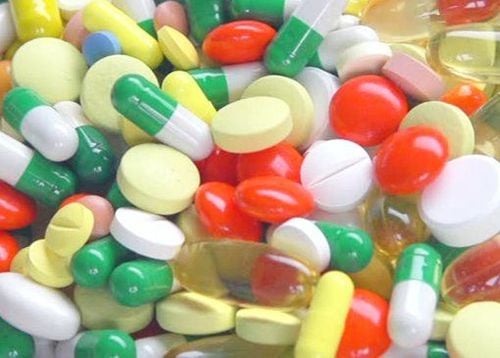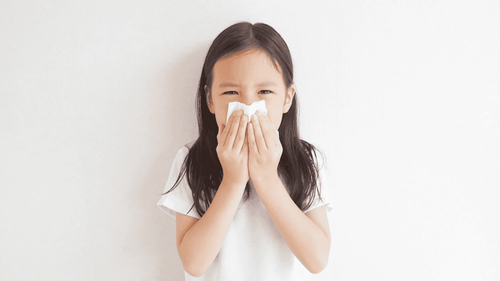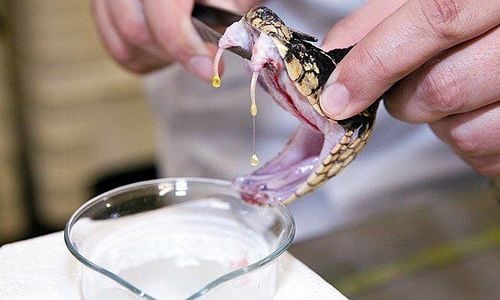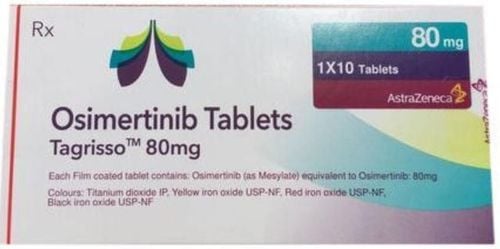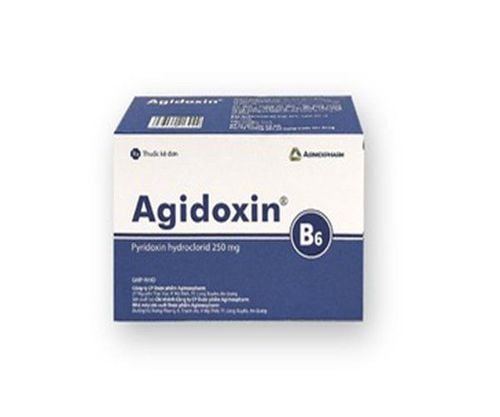This is an automatically translated article.
Posted by Master, Doctor Nguyen Nam Phong - Pediatrician - Department of Pediatrics - Neonatology - Vinmec Phu Quoc International General HospitalAspiration is a condition that occurs when a foreign object enters the airways, obstructing the airway, causing a child to suddenly cough violently, wheeze, have difficulty breathing, and turn cyan. Therefore, children need to be treated promptly to limit unwanted risks that may occur.
1.What is choking? Aspiration is a condition that occurs when a foreign object enters the airways, obstructing the airway, causing a child to cough, wheeze, and turn blue. The foreign body that the child has can be milk, food, water and small objects such as marbles, paper clips ... that the child can put in the mouth.
Aspiration can occur in children of all ages, but is most common between the age of weaning and 3 years of age. At this age, children are often curious, like to put things in their mouths to play. The reflexes that open and close the larynx to protect the airways during eating and breathing are immature. If you carelessly feed the child, sucking on these types of food will easily choke, causing foreign bodies in the airways.
2. Is choking dangerous for children? Aspiration may be transient, such as a child's cough for a few hours, mild cyanosis and then self-limiting, but there are cases of children choking, severe cyanosis, apnea and death. If the child is lucky to survive, the child may suffer brain damage due to lack of oxygen, aspiration pneumonia ... Because aspiration is so dangerous, it is extremely important to recognize that a child is being aspirated.
How to recognize a child is having aspiration as follows:
The child suddenly coughs, wheezes, may turn cyan, hiccups and respiratory failure, especially when the child is eating or drinking or playing with small objects . Children with fever, cough, persistent wheezing, hemoptysis, recurrent pneumonia must suspect foreign objects left in the airways due to previous aspiration that the parents did not detect.

3. What should be done when the child is choking?
3.1. The case of children who can't cry at this time, the situation is not too serious. Normally, when moving through the respiratory tract, the air will cause noise. Coughing or crying out loud means that the baby is breathing, the airways are not completely blocked, the baby is not severely suffocated.
If the baby is breathing, do not intervene, as this can be dangerous. You should not try to remove the foreign object by patting the back, pressing the chest, you can push the object deeper, causing the baby to stop breathing.
Instead, stand by your side cheering and encouraging your baby to continue coughing. Cough and gag reflexes can help your baby get rid of the foreign object within a minute. Be calm, let your baby understand that everything is fine, so he won't panic. Monitor and see if your baby is breathing easier after coughing.
3.2. If the child has severe shortness of breath, struggles, cyanosis, apnea, coma ... we must be very calm to perform emergency actions for the child.
For infants and infants, it is necessary to do chest compressions as follows: Place the child on his/her stomach, head down, palms do not cover the baby's mouth or nose or squeeze the baby's neck. Use the palm of your other hand to tap the child's back five times between the shoulder blades. Then turn the baby upside down, if breathing is still difficult, use two fingers to press the baby's chest 5 times in the middle of the chest about 1cm below the line connecting the two nipples. If the pink baby holds the baby with its head high and holds it still, if it is still difficult to breathe, you need to continue to perform chest compressions several times and call the emergency team. Absolutely do not carry the child upside down because this is often ineffective, which can easily injure the cervical spine and may drop the child to the ground. For older children, we do the Heimlich maneuver: When the child is awake, stand or kneel behind the child, put your arms horizontally in front of the young person, place a fist right in the epigastric area, the other hand is placed on top, suddenly press strong and fast in the direction from bottom to top and from front to back, do 5 times.
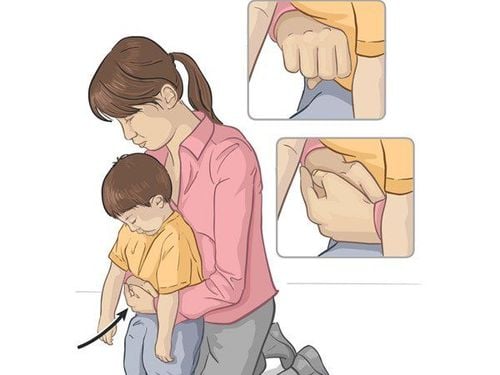
When the child is in a coma, place the child on his or her back, kneel down, put your hands on top of each other in the area below the child's sternum, suddenly press firmly and quickly 5 times in the direction of the child's head.
Then check the child's mouth, if it is clear that the object is ejected and can be removed easily, the foreign body can be hooked, not blind (no foreign object can be seen) because it can push the foreign object deeper, causing more airway obstruction.
In case of failure, the above procedures can be repeated several times until the object is ejected and the child breathes normally again. If the child stops breathing, tilt the head up, lift the child's chin and give breaths, press the heart outside the chest. In addition to performing the procedure of ejecting the foreign body for the child, you must immediately call the emergency team to help and take the child to the hospital.
4. How to prevent aspiration in children Foreign bodies due to aspiration usually occur between the ages of 6 months and 3 years old because children begin to develop motor skills, often grasp objects and often put them in their mouths. . Younger children often choke on milk, porridge, and powder when feeding or nursing. Therefore, parents should carefully pay attention to the following issues:
Do not feed children while lying down or sleeping, encourage children not to run, jump, laugh while eating. Choose foods appropriate for the child's age and prepare them so that they are easy to chew and swallow. Feed the child slowly with small spoons, do not scold and force the child to eat quickly because if the child cries or swallows in a hurry, it will easily cause the child to choke. When breastfeeding, you should hold the baby in your arms with the head and shoulders higher than the legs, when the baby is spitting milk, tilt the baby's head to the side to prevent vomit from entering the airway. Remove all the seeds in the fruit when feeding the child fruits such as watermelon, custard apple... Let the child play with large and difficult to disassemble objects that the child cannot put in his mouth, and at the same time leave small objects out of sight and reach of children. Aspiration in children can leave dangerous complications if not treated promptly. In addition to preventing aspiration, parents also need to equip themselves with first aid knowledge to be able to handle it promptly.
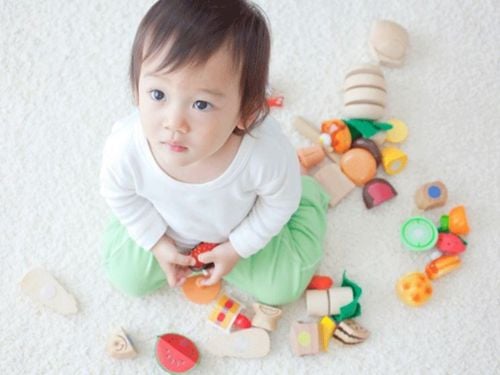
As a key area of Vinmec Health system, Pediatrics Department always brings satisfaction to customers and is highly appreciated by industry experts with:
Gathering a team of top doctors and nurses in Pediatrics : consists of leading experts with high professional qualifications (professors, associate professors, doctorates, masters), experienced, worked at major hospitals such as Bach Mai, 108.. Doctors All doctors are well-trained, professional, conscientious, knowledgeable about young psychology. In addition to domestic pediatric specialists, the Department of Pediatrics also has the participation of foreign experts (Japan, Singapore, Australia, USA) who are always pioneers in applying the latest and most effective treatment regimens. . Comprehensive services: In the field of Pediatrics, Vinmec provides a series of continuous medical examination and treatment services from Newborn to Pediatric and Vaccine,... according to international standards to help parents take care of their baby's health from birth to childhood. from birth to adulthood Specialized techniques: Vinmec has successfully deployed many specialized techniques to make the treatment of difficult diseases in Pediatrics more effective: neurosurgery - skull surgery, stem cell transplantation. blood in cancer treatment. Professional care: In addition to understanding children's psychology, Vinmec also pays special attention to the children's play space, helping them to have fun and get used to the hospital's environment, cooperate in treatment, improve the efficiency of medical treatment.
Please dial HOTLINE for more information or register for an appointment HERE. Download MyVinmec app to make appointments faster and to manage your bookings easily.





